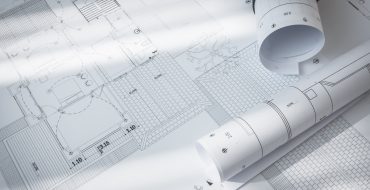
As storms strengthen, sea level rises and a pandemic lingers, the word resiliency has taken a more profound meaning for the South Florida community. It defines the ability to respond, absorb, adapt and recover from disruptive events, including natural disasters.
Find the original article at: https://www.bizjournals.com/southflorida/news/2020/12/07/resiliency-at-the-forefront-of-design-and-construc.html
As communities today continue to feel the health, economic and social impacts of a global pandemic, this event in itself has challenged individuals to seek resiliency in their personal and work lives. For example, health care organizations, such as Broward Health and Lee Health, have leaned on Skanska to help create additional hospital beds that met strict guidelines to treat Covid-19 patients in the South and Southwest of Florida.
Public and private sectors working together to create more resilient communities
In a pre-Covid world, communities across Florida have been demonstrating for years now that stewardship and collaboration from both the public and private sector is critical to create more resilient communities. From investing millions of dollars in infrastructure improvements to incorporating more energy-efficient elements and putting measures in place to mitigate environmental impacts, communities are making significant strides in forward-thinking planning and long-term solutions.
For example, Skanska is investing in tools to build carbon-efficient building systems. The company has delivered about 214 LEED projects worldwide comprising a combined 36-million square feet and we serve as a platinum member of the U.S. Green Building Council. Skanska also became the first U.S. contractor to achieve ISO 14001 certification. (This is an international standard that sets the framework that an organization should follow to achieve an effective environmental management system).
The St. Pete Pier and the University of Miami’s Patricia Louise Frost Music Studios projects exemplify some of these resiliency elements.
University of Miami’s Patricia Louise Frost Music Studios
In South Florida, the University of Miami’s Patricia Louise Frost Music Studios exemplifies resiliency not only in its design and construction but in how it reflects the music school’s mission. It inspires students to be resilient in their careers with an innovative music curriculum that encompasses business and legal courses, providing students a well-rounded education for a successful future.
The project, which Skanska built and was recognized as Urban Land Institute’s Project of the Year in 2015, became the first newly built music school in the U.S. to achieve LEED Platinum. Among its sustainable features is the use of rooftop panels to supply energy to the school, self-cleaning precast concrete panels that clean the air film around the building to prevent dirt from collecting and green materials, such as curtain wall frames made from recycled content and bamboo flooring.
Just this summer, the city of St. Petersburg celebrated the re-opening of its historic pier, which underwent a $92 million reconstruction that created the St. Pete Pier District complete with waterfront restaurants, interactive experiences, a spacious family park with a custom-built, million-dollar playground, fishing pier, art installations and beach area.
Among the pier’s resiliency and sustainability elements are five of the previous piers’ caissons that were preserved and are now used to support the fishing deck of the new pier. The new concrete pile foundations were made with mixtures for an extreme marine environment and weather conditions and were built to have a lifetime of at least 75 years. The new pier, which was built by Skanska, has also been elevated to consider projected sea level rise through the year 2100. It’s raised over five feet above that of the previous seven piers. The parking lot is fit with solar photovoltaic canopies and eco-friendly trams that take visitors across the 26 acres of waterfront pier and public space.
Calculating embodied carbon in construction materials
To achieve resiliency, investing in innovation is key. That is why in 2018 Skanska co-created the Embodied Carbon in Construction Calculator (EC3) tool in collaboration with tech developer C-Change Labs with seed funding from Skanska and Microsoft. The EC3 tool is an open-source database of construction material information based on environmental product declaration (EPD) data. Currently, there are over 16,000 EPDs in the database representing a range of materials, including concrete, steel and gypsum, and the data is searchable by design specs, project location and global warming.
This increased availability of data will improve awareness about the impacts of embodied carbon and help drive carbon reductions by enabling more informed construction material choices. It is also expected to incentivize manufacturers to produce low-carbon products and decarbonize the supply chain – all leading to long-term benefits and cost reductions.
While the last few months have proven that unforeseen events cause major disruptions in business and daily life, it is also a reminder that planning for the future is imperative. Achieving resiliency is a team sport that requires collaboration and participation among all stakeholders – builders, elected officials, business leaders. The more learning, investing and planning that is done today, the more prepared, protected and resilient communities will be in the future.
Learn more about Skanska and how it is responding to Covid impacts to the health care construction industry and the overall impact to the design and construction of buildings.
Skanska is a leading global construction and development company. In the U.S., Skanska’s core operations include building construction, civil infrastructure and developing self-financed commercial properties. An industry leading innovator in safety and project execution, Skanska offers competitive solutions to help build a more sustainable future for our customers and communities.
Nicole Heran is a native of Palm Beach County and serves as project executive for Skanska’s South Florida building operations providing direct management for project teams in the region. She oversees the construction process from preconstruction through the entire construction phase. Heran is currently spearheading the renovation of the Salah Foundation Children’s Hospital at Broward Health in Fort Lauderdale.